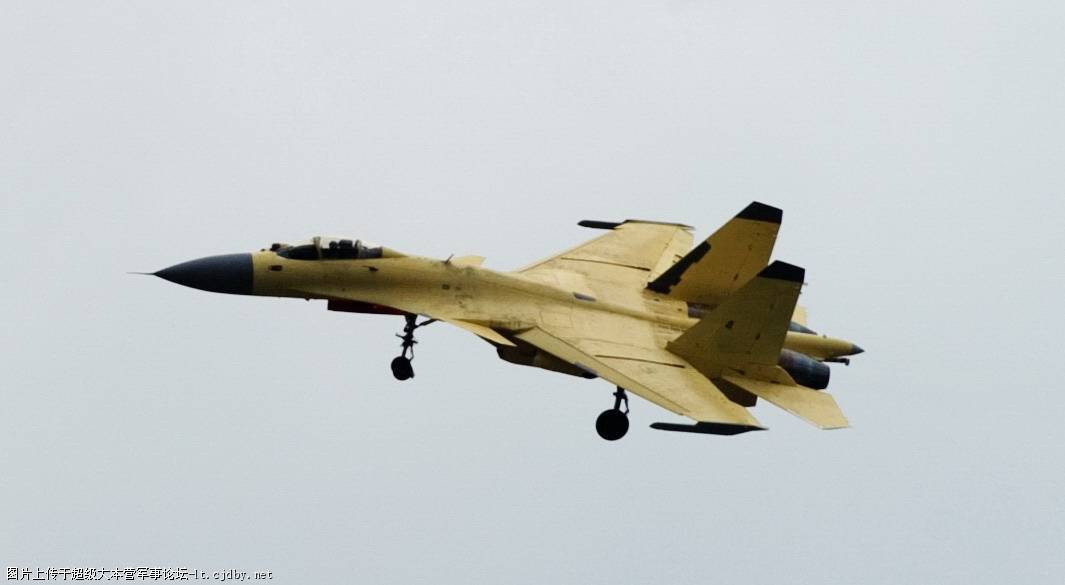Russia complains about the Chinese fighter J-15

Aviation an expert from Rosoboronexport noted that he was shocked to learn that China had managed to copy the Su-33 in such a short period. He honestly admitted that “we have worked very poorly on the issue of protecting our intellectual property. The Russian-Chinese agreement on the protection of intellectual property, concluded in December 2008, was ineffective. Therefore, we began to push the agreement into the background. To date, the agreement contains only a few pages, and its paragraphs are general in nature. At present, we are thinking about how to clarify the items related to our intellectual property and what effective steps should be taken to bring the situation under control. ” It seems that Russia is once again ready to raise the issue of protecting its intellectual rights. “The Chinese side never contacted us about the J-15, and never gave an explanation of what was happening. Never".
He also silently admitted that the supply of Russian weapons to China at this stage is nearing completion.
At the same press conference, A. Emelyanov also indicated that “Rosoboronexport Company did not discuss with the Chinese side the issue of the J-15 fighter, and it is not within its competence. We are responsible for informing the competent federal authorities on the latest developments and developments, and the problem should be solved at the appropriate government level of the two countries. ”
Speaking with Kanwa Asian Defense about the situation around J-15, all Russian weapons experts expressed their disappointment and displeasure. According to them, “unlike the situation with the fighter J-11B, the copying of the J-15 took place after the conclusion of an agreement on the protection of intellectual property.”
The continued Chinese copying of the Su-33 carrier-based fighter also attracted the attention of the American and European defense industry. Answering a question from Kanwa, an expert from the American company Raytheon noted: “How did China manage to copy Su-33 in such a short time? Even for the USA, given the high level of education, innovative spirit, experience in designing and the most modern production, copying Su-33 is not an easy task. This is because the American and European defense industries are based on innovative projects, not on copying. ”
The increased fear of European defense companies regarding the Chinese development of J-15 is a clear signal that they have begun to analyze the issue of the protection of intellectual property on their weapons. Europe is delaying the lifting of the arms embargo in China. One of the key points for this is the lack of serious lobbying opportunities for European defense industry workers. Raytheon’s technical expert asked more questions about J-15 than representatives of Russian defense companies.
[...] Russian discontent with cloning of the Su-33 is not limited to mere statements. Earlier, Kanwa reported that the Russian defense industry is considering the possibility of freezing or even completely terminating the agreement on the transfer to the PRC of the J-11 fighter technology. As of July 2010, the agreement was still in force, and in accordance with its provisions Russia should supply some components to the PRC, including the AL-31F engines and other systems for the Su-27SK, J-11 and J-11A fighter jets. The proposal to “freeze the agreement” means that Russia may impose new restrictions on the export of AL-31F engines. In other words, Russia can reduce the amount of AL-31F exported to the PRC or simply stop sales. According to an informed source in the Russian defense industry, “we are considering the possible types of expression of our position. We know that, in accordance with the agreement, a significant number of AL-31F engines purchased by the People's Republic of China were not used in the designated aircraft. Instead, they were mounted on J-11B and future J-15 fighters. ” Russia began to take retaliatory actions. In July, in an article published in Nezavisimaya Gazeta, the president of the Sukhoi and MiG companies M. Poghosyan proposed that the Russian government freeze the contract from 2005 for the supply of 100 RD-93 engines to China, according to which 57 of RD-93 engines Russia was supposed to deliver in China to 2010.
A source at Rosoboronexport told Kanwa that the suspension of the contract would not affect the engines already delivered. The logic of M. Pogosyan's article is to avoid competition between the MiG-29CMT and the Chinese JF-17 in international markets. As soon as the agreement is suspended, the export of JF-17 to countries such as Pakistan will increase dramatically. Why freeze the contract on RD-93? Previous Kanwa materials indicated that due to the export of the MiG-29. But now Kanwa believes that this is an attempt by the Russian defense industry to express its dissatisfaction with J-11B and J-15 - or even a warning to the Chinese.
Information